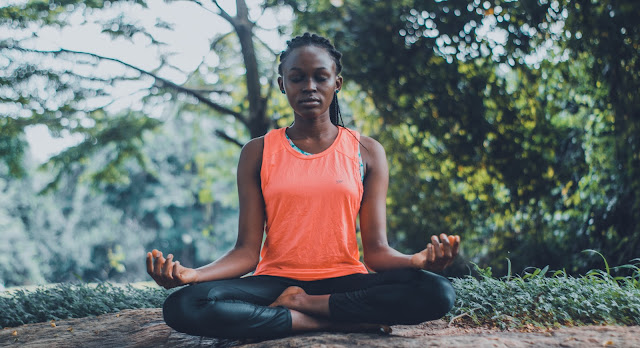In today's fast-paced and often chaotic world, finding moments of tranquility and inner peace has become increasingly crucial for our well-being. Meditation, an ancient practice with roots in various cultures and traditions, has emerged as a powerful tool for achieving a state of calmness, mindfulness, and self-awareness. This article delves into the art of meditation, exploring its history, benefits, techniques, and its relevance in modern times.
A Brief History of Meditation: Ancient Wisdom for Modern Minds
Meditation's origins can be traced back thousands of years, with roots in diverse spiritual and philosophical traditions such as Buddhism, Hinduism, Taoism, and Jainism. These ancient cultures recognized the profound benefits of quieting the mind and turning inward for self-discovery and spiritual growth. Meditation was not just a practice; it was a way of life.
The Science Behind Meditation: Benefits for Mind and Body
In recent decades, scientific research has uncovered a multitude of benefits associated with regular meditation practice. From reducing stress and anxiety to enhancing concentration and emotional regulation, meditation has a transformative impact on both the mind and the body.
- Stress Reduction: Meditation helps activate the body's relaxation response, leading to decreased production of stress hormones like cortisol. This relaxation response contributes to a sense of calmness and tranquility.
- Improved Focus and Concentration: Regular meditation enhances the brain's ability to sustain attention and concentrate on tasks, resulting in improved cognitive performance.
- Enhanced Emotional Well-being: Meditation cultivates emotional resilience by fostering awareness of one's thoughts and emotions. This awareness enables individuals to respond to their feelings in a more measured and controlled manner.
- Reduced Anxiety: The practice of mindfulness meditation has been shown to alleviate symptoms of anxiety disorders by promoting present-moment awareness and reducing excessive rumination.
- Promotion of Self-Awareness: Meditation encourages self-reflection and self-exploration, leading to a deeper understanding of one's thoughts, behaviors, and motivations.
- Physical Benefits: Meditation's positive effects extend to the body as well. It can lower blood pressure, improve sleep quality, boost the immune system, and even aid in pain management.
Techniques and Approaches to Meditation
Meditation is a diverse practice, with various techniques catering to different preferences and goals. Some of the most commonly practiced meditation techniques include:
Mindfulness Meditation: Focuses on observing thoughts, sensations, and feelings without judgment. This practice encourages being fully present in the moment.
Transcendental Meditation: Involves the use of a specific mantra to achieve a state of deep relaxation and expanded awareness.
Loving-kindness Meditation: Emphasizes cultivating feelings of love, compassion, and goodwill toward oneself and others.
Guided Meditation: Involves following the guidance of an instructor or recorded audio to lead the practitioner through a specific meditation journey.
Body Scan Meditation: Focuses on systematically scanning and relaxing each part of the body, promoting physical relaxation and self-awareness.
Integrating Meditation into Modern Life
In our fast-paced digital age, the need for mindfulness and self-care has become more pressing than ever. Meditation provides a practical and accessible means of achieving these goals. Here's how to integrate meditation into your daily routine:
- Start Small: Begin with just a few minutes of meditation each day and gradually increase the duration as you become more comfortable.
- Consistency is Key: Regular practice yields the best results. Aim for a consistent daily meditation routine.
- Create a Sacred Space: Designate a quiet and comfortable space for your meditation practice. This space should be free from distractions.
- Use Resources: There are numerous apps, online videos, and guided meditation recordings available to assist you in your meditation journey.
- Be Patient: Like any skill, meditation requires patience and practice. Don't be discouraged by a wandering mind; it's a natural part of the process.
Meditation is a timeless practice that empowers individuals to navigate life's challenges with grace and equanimity. As scientific research continues to uncover its benefits, meditation is finding its place as an essential tool for holistic well-being in our modern world. By cultivating mindfulness, self-awareness, and inner peace, meditation offers a transformative path to leading a more balanced, meaningful, and fulfilling life.

